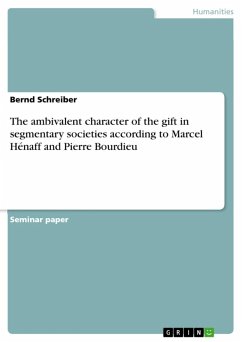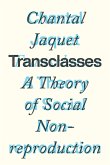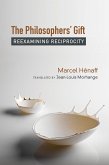Seminar paper from the year 2015 in the subject Philosophy - Philosophy of the 20th century, grade: 1,3, University of Hagen (Philosophie), course: Meisterkurs mit Marcel Hénaff: 'Der Preis der Wahrheit', language: English, abstract: Are gifts disinterested presents, challenges geared to rivalry and fighting, offers of social reciprocal recognition, or an exchange of goods on a pure economic base? Sociologists, psychologists, ethnologists and philosophers have discussed these questions for decades, initiated in many cases by the "Essai sur le don" by Marcel Mauss, written in 1924/25 about the form and reason for exchange in archaic societies. Reciprocity, social totality, anti-utilitarianism and amalgamation of souls and things are the main issues of his ethnographic fundamental and systematic comparative study of the exchange of gifts. Following Moebius, the consequential intense receptions can be substantially divided into two main strands. On the one hand, there is the anti-utilitarianism mindset. While the former idea emphasizes an anti-economic, and unproductive wasteful perception, the latter structure-centered view sees the exchange of goods as a supra-subjective structure, caused unconsciously by the mind with its ability to symbolize and - following Bourdieu - to be thoroughly economic and benefit-oriented. In a different approach Caillé tries to overcome the antagonism of both lines by his so-called "third paradigm". He suggests to avoid the one-dimensional view of holistic vs. individualistic, rationally vs. voluntary, but to speak of the four different cornerstones of human activity, which interact parallel with different intensity. These cornerstones are voluntariness, obligation, interest and altruism. The occurrence of contrasting characteristics as paradox phenomena of the gift is particularly picked up by Marcel Hénaff in a highly regarded approach, directing attention to reciprocal recognition and the creation of a social bond. This seminar paper will investigate the ambivalent character of the gift. Between and within the two main strands mentioned, there exists such an argumentative width and depth, that it is essential for the feasibility with reasonable effort to restrict the considerations related to the number of protagonists and aspects. The limitation will refer to two approaches, firstly, Marcel Hénaff and his view of the ceremonial gift and secondly, Pierre Bourdieus understanding of the giving procedure. As starting points and sources of the statements, "Der Preis der Wahrheit" and "Die Gabe der Philosophen" as well as "Entwurf einer Theorie der Praxis" are used.
Dieser Download kann aus rechtlichen Gründen nur mit Rechnungsadresse in A, B, BG, CY, CZ, D, DK, EW, E, FIN, F, GR, HR, H, IRL, I, LT, L, LR, M, NL, PL, P, R, S, SLO, SK ausgeliefert werden.









